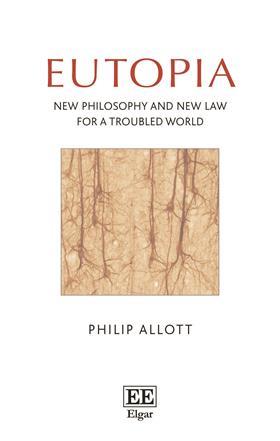Starting with Thomas More’s Utopia (1516), Philip Allott, a professor of international public law at Cambridge University and a former legal adviser at the Foreign & Commonwealth Office, expounds on what constitutes an ideal society and how to achieve it. Whether Utopia is satire or a description of an ideal society (or both) is unclear. Another figure of the English Renaissance, Francis Bacon, proposed ‘a total reconstruction of sciences, arts and all human knowledge raised on proper foundations’. Professor Allott identifies a need for a renaissance in culture, politics and everything else.
Eutopia: new philosophy and new law for a troubled world
Philip Allott
£95, Edward Elgar Publishing

A central question is whether the law changes the world, or reflects society. Most laws define morality rather than imposing a standard that we aspire to, or attempting to redefine opinion. Law lags behind morals and does not lead.
Allott goes on to assess whether society has changed with the times. Technology has not provided the ‘Eutopia’ that people wanted; the end of the Cold War has not led to universal peace; and secularism has not led to freedom.
Allott’s conclusion that society is in need of a revolution is accompanied by the positive assertion that education and learning can make a difference – and that the happy place our ancestors desired is achievable.
David Pickup is a partner at Pickup and Scott Solicitors, Aylesbury































No comments yet